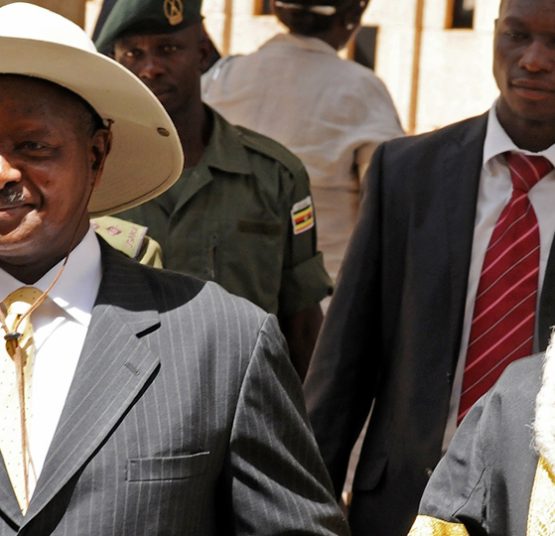
Opinion: Parliament’s motion of infamy

By David Mafabi
Last Thursday, the Parliament of Uganda passed a so-called “Motion of Displeasure” directed at the President of Uganda for, amongst other things “making disparaging remarks against the Speaker and the Parliament of Uganda”! Another charge was, to paraphrase, disregarding “the doctrine of separation of powers”! Etc. A veritable day of infamy – as architects of mischief sought to drag down the Fountain of Honour into opprobrium!
I have spoken to a number of Members of Parliament. Some say, the President “undressed” them before the electorate. That he rendered them “worthless” in front of “wananchi”. That the population “now think we are thieves”. They add that not only was money legally appropriated, but that there is need for it … That their constituents need: “food”, “medicare”, etc. Ad infinitum.
I have not the slightest doubt about the sincerity of some of the legislators I have spoken to – I think they may have a point or two. Except, I could see that they had not internalized the fact that whatever issues they may have had, there were still no grounds whatsoever to justify the motion of infamy which they passed last Thursday. Clearly again, they failed to discern the multiple reasons why the President would be irked by the appropriation they had made in their own favour.
Let us try to trace the “original sin”. On examination of the information available, it appears that the offensive item of appropriation (Uganda Shillings 10 billion for the MPs) was never in the Supplementary Schedule introduced by the Minister of Finance. It appears further, that the item was initially not in the Budget Committee Report. It appears, finally, that the initial signed copy uploaded onto the MPs’ IPads, did not contain that item.
Now, under the Constitution of the Republic of Uganda, the authority to originate an Appropriations or Supplementary Appropriations Bill – lies with the Executive. It does not lie with Parliament. When a Supplementary request has been received, Parliament approves or rejects (giving the reasons thereof) the request – or re-allocates money under a set ceiling, with concurrence of the Minister of Finance.
The unique item referred to as “Allocation to Parliamentary Commission” did not originate from the Executive – meaning the Executive could not have had initial knowledge of it. Under all these circumstances, with the President being additionally uncomfortable with the rationale for the Parliamentary ”fait accompli”, it was absolutely necessary for him to give a firm, metaphorical rap to the heads of his compatriots under whose watch this travesty had unfolded.
Our political elite and intelligentsia should also move away from insularism and a mechanical comprehension of the doctrine of separation of powers. This is because in reality, state power is indivisible. We rather speak of a differentiation of roles. I like giving two examples to help me make this point. In the United Kingdom up to the Constitutional Reform of 2005, the Lord High Chancellor was a senior Cabinet Minister and in charge of the Judiciary, was simultaneously Head of the Judiciary (Chief Justice), simultaneously Chair (Speaker) of the House of Lords (the Upper House of Parliament) … The Lords were also the final appellate Court! To crown this very interesting situation, the 26 or so Bishops of the Church of England are members of the House of Lords … Her Majesty the Queen is Head of the Church of England! The United States provides another interesting example of the ultimate indivisibility of state power: the Vice President of the United States is still the President (Speaker) of Senate. The point for us here at home, is that all arms have no choice but to work very closely together – while being very conscious of the differentiation and specialization in roles and functions.
Another matter. Uganda is a budding multiparty democracy, which dispensation should be carefully nurtured. Apart from Independents, the overwhelming majority of MPs belong to political parties and organizations – they are flag bearers. The Members of Parliament must consequently be given the Whip by their mother political parties and organizations. We are not under the Movement political system.
In a word, as we build constitutional and democratic Government, jostling amongst and between Executive, Legislature and Judiciary is inevitable – especially given the still unfolding processes of national and statal formation. There however, should be no glossing over the fact that under Article 99 of the Constitution of the Republic of Uganda, executive authority of Uganda is vested in the President of Uganda. Nobody should in anyway seek to usurp it.
Not least, when we are battling a pandemic of unprecedented proportion. As alluded to above, some of the MPs have told me that they have acted the way they have, because their people need food, etc. That they are dissatisfied regarding the measures put in place to fight the COVID-19 pandemic. Those precisely, are the kind of issues to raise in the numerous councils of state in which they represent wananchi – so that we improve on management of the pandemic. That is why there must be absolute clarity on the functions of Parliament as a collegiate body, and of individual MPs. Fortunately, these are clearly spelt out in our law.
The saber-rattling reflected in motions of infamy such as that passed yesterday is pointless, and a complete waste of time. We should for once, irrespective of our different perceptions, close ranks behind the President, and together continue the onslaught against the pandemic – and defeat it.
David Mafabi
Senior Presidential Advisor/Special Duties
State House
kdavidmafabi1@gmail.com
The post Opinion: Parliament’s motion of infamy appeared first on Nile Post.
0 Response to "Opinion: Parliament’s motion of infamy"
Post a Comment